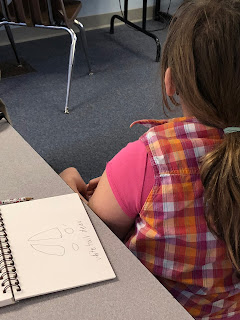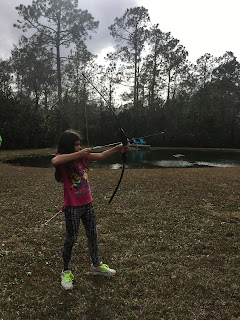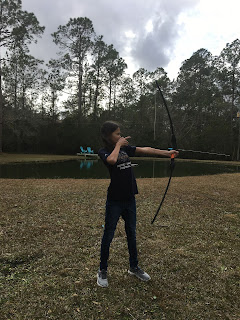Weeks 23 and 24 have been exciting! Here's some of our learning~
Bible:
The power and love of Jesus is expressed in the four Gospels, giving us a glimpse into the miracles of Jesus. These miracles show us that He has power over nature, sickness, evil spirits, and even power over death! Through the parables of Jesus, we see that God loves us very much, takes care of us, answers our prayers, and gives us instruction for living in His Word. He keeps us close to Him as we listen and obey his Word.
History:
We continued our study of feudalism in England and learned more about serfs and noblemen. William the Conqueror was responsible for this way of life in his land after he became king in 1066. The Normans also began building stone castles instead of wooden houses during this time to protect the overlords from the English peasants who rioted over the ways of feudalism.
The process of becoming a knight began with becoming a page, then a squire, and finally a knight.
England wasn't the only country that had a feudal system. Japan's knights were called samurai and the noblemen were called daimyos. While the knights in England followed the code of chivalry, the samurai had their own code, called "the way of the warrior". They were fierce, but also wrote poetry and made beautiful gardens.
The age of the Crusades (1096-1291) was all about Christians recapturing Jerusalem from Muslim control and began as a command from the Pope after the Byzantine emperor begged for help in stopping Muslims from taking over Constantinople. Jerusalem has been a holy city for Muslims, Jews, and Christians. Muslims believed Muhammed ascended to heaven from a great rock inside the city. It was a holy city for Jews because it was the city of David, the great Hebrew king, and because it was the location of the ruins of the Temple destroyed by the Romans. It was holy for Christians because Jesus was crucified there. We also studied Saladin of Jerusalem and El Cid and the "Reconquest of Spain". Arabs living in Spain were known as the Moors and their kingdom was called Al-Andalus.
Finally, we learned about King Richard the Lionhearted (crowned King of England in 1189), his brother John (who tried to steal the throne), and the signing of the Magna Carta, or Great Charter, in 1215 at Runnymede to force kings to obey the law. We still follow the ideas of the Magna Carta today. Of course, the legend of Robin Hood was a fun addition to read about, as well.
Science 3rd:
Plant reproduction and how plants react to their surroundings was a fascinating study. We look at several interesting plants, like the Rafflesia flower (the biggest flower in the world). It can measure up to 1 meter across. See photo above!
We also studied the parts of a seed: the seed coat, embryo, and stored food. We looked at soaked lima beans to see how life in the seed begins with water. This can happen without sunlight because the seed has stored food to grow its first leaves, after that, sunlight is used by the plant to produce food for itself.
Science 6th:
In Cool Stuff 2.0, the topics for week 23: power towers, winches, micrometers, lasers, and silicon in complex micro-machines. Topics for week 24: designs on printed money, features on genuine currency to deter counterfeiting, data chips in passports, and using features to identify someone (facial features, fingerprints, and irises).
In What's Science All About: Finished up with physics by looking at the differences in the planets and influential physicists. Example: Tim Berners-Lee whose contribution was launching the World Wide Web in 1991. We also began studying the following in Chemistry: What chemists study (substances), atoms & molecules, early matches, Teflon, chemical properties versus physical properties, chemical reactions, states of matter, how temperature and pressure affect the states of matter, properties of water, mixtures, compounds, methods to separate mixtures, and much more!
Math 3rd:
We continued measurement by moving to liters and milliliters to measure volume of a liquid. We created our own measurement jar, measured the capacity of several containers, and converted liters to milliliters. Our 3rd graders are doing a great job on their review books, too! They solve 5 problems a day, every day, for review on a variety of skills.
Writing/Grammar:
3rd grade continues to write letters to family and friends, as well as make corrections to paragraphs by finding mistakes in spelling, punctuation, capitalization, and spacing.
Reading:
We finished our read aloud, The Great and Terrible Quest! We loved reading about the little boy Trad, who turned out to be the rightful king!
Well, if you made it to the end of this ridiculously long post... gold stars for you! It may have been a lot to read, but think about how much it was to learn, yet our amazing students did just that! On top of piano lessons, dance lessons, horse lessons, math games, poetry, vocabulary, and all the things.
We look forward to posting our week in photos next!





































































